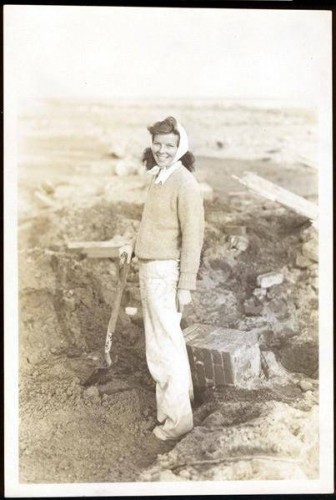On May 12, 1907, stage and screen legend Katharine Hepburn was born to Hartford physician Thomas Norval Hepburn and women’s right activist Katharine Houghton Hepburn. In her six-decade-long career as an actress, she won four Oscars for best actress—her first in 1933 for the film Morning Glory and her last for On Golden Pond in 1981—as well as an Emmy, a Tony, and many other awards in the performing arts.
She was famous for her beauty and her independence, wearing pants and men’s caps when other Hollywood stars wore dresses and matching hats, and for her unconventional attitudes. Her on-screen liaison with Spencer Tracy became a personal relationship that lasted from 1941 until his death in 1967, though they never married and spent a lot of time apart.
Hepburn was famous also for her commitment to her life in Connecticut, where she was both a beloved public figure and yet permitted to live in the privacy she treasured. When the Hepburn family’s summer home in the Fenwick section of Old Saybrook was destroyed in the Great Hurricane of 1938—and she was there at the time—she built a new home on the waterfront where she lived until her death in 2003 at the age of 96. (She also owned a townhouse in the Turtle Bay section of Manhattan, which she had bought in the early 1930s, and divided her time between that home and Fenwick.)
Her cinematic and theatrical roles often mirrored her own life as a woman of independence, from her feisty Jo in Little Women, to reporter Tess Harding in Woman of the Year, to Coco Chanel in Broadway’s Coco. Hepburn often played straightforward, no-nonsense women like herself, but with a vulnerable side, and the public loved both her characters and the actress herself.
Hepburn wrote several autobiographies in her later life and was famous for her candor and her spiky bon-mots, such as: “If you always do what interests you, at least one person is pleased” and “If you obey all of the rules, you miss all of the fun.” She also suggested that perhaps men and women shouldn’t live together, but have houses next door to each other, and just visit.
In her attitudes toward Hollywood and toward her career, Hepburn was a modern. She went after the roles that she knew would work for her and stayed with the personal styles that suited her. She often played women who knew themselves. She appears to have been such a woman as well.
Anne Farrow is the co-author of Complicity: How the North Promoted, Prolonged, and Profited from Slavery and is at work on a new book about slavery to be published by Wesleyan University Press.








